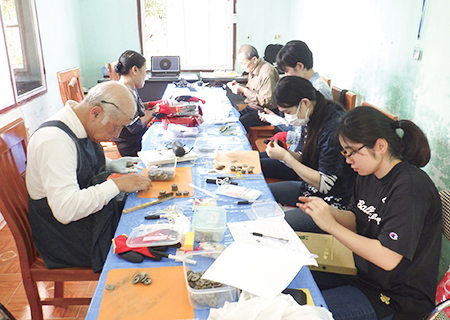School of History

Tokyo Campus
Introduction of School
We offer “fieldwork” from the first year, in which students will learn by touching the actual sites and real things through historical materials and at historical sites and museums, so that they can gain a deeper understanding of history. They will also experience the entire process, including preparation, negotiations with interviewees, keeping records of fieldwork results, and information dissemination.
School of History is FOR YOU if you...
- Want to get closer to history by touching ancient documents and actual materials
- Want to expand your experience by actually going to historical sites and museums
- Want to learn history in a small seminar
Licenses and Qualifications that can be Acquired
■ Class 1 junior high school teacher’s license (social studies)
■ Class 1 high school teacher’s license (geography and history)
■ Class 1 high school teacher’s license (geography and history)
■ Curator qualification
■ Associate school psychologist, etc.
■ Associate school psychologist, etc.
Anticipated Future Career Paths
■ Junior high school
■ High school
■ Civil servant
■ Curators of museums and art galleries
■ Archives staff
■ High school
■ Civil servant
■ Curators of museums and art galleries
■ Archives staff
■ Cultural property specialist
■ Publisher, media
■ Occupations and general companies related to cultural properties, etc.
■ Publisher, media
■ Occupations and general companies related to cultural properties, etc.
Points of Learning
Get closer to history by touching ancient documents and actual materials
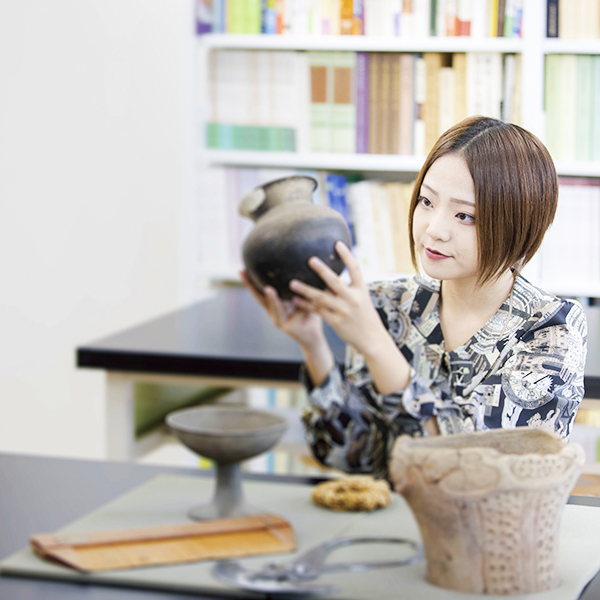
1
Students will learn the basic research methods such as how to read ancient documents and how to handle materials, gain a deep understanding of past events byactually visitinghistorical sites, to acquire a historical view of things.
Fieldwork at historical sites and museums
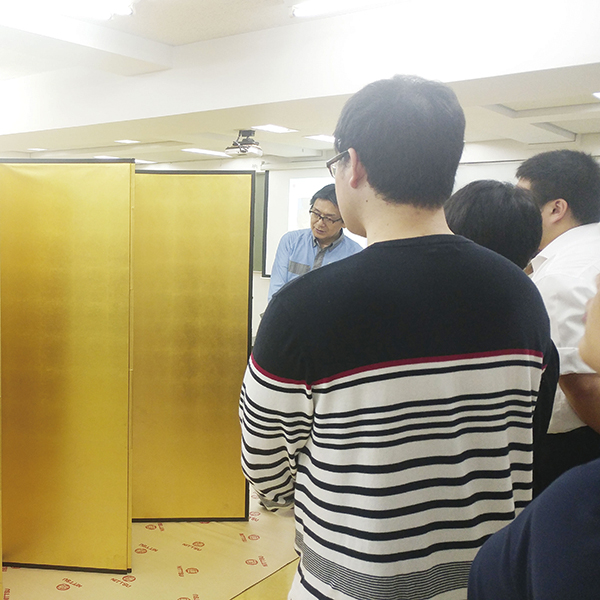
2
We offer “fieldwork” at historical sites and museums from the first year, to help students gain a deeper understanding of history. They will also experience the entire process, including preparation, keeping records of fieldwork results, and information
dissemination.
Acquire the ability to summarize, present, and collaborate
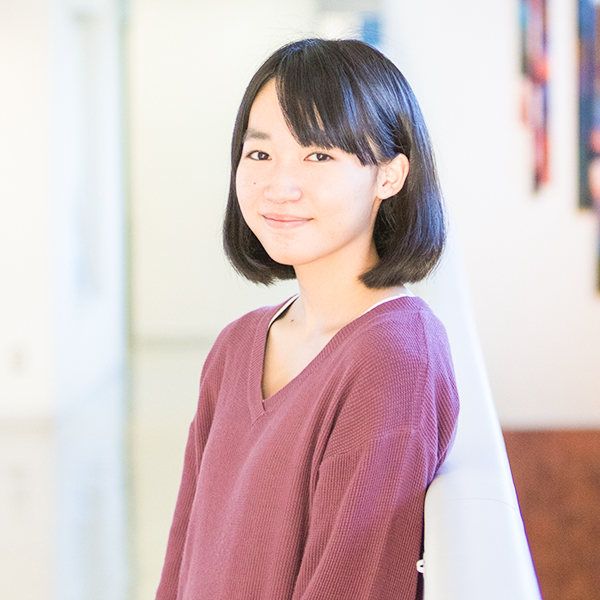
3
During fieldwork, students form groups and cooperate with each other to proceed with their survey, then they summarize the survey results in writing and present it. They will acquire the skills to be required after entering society.

Step-Up Learning to Acquire Solid Knowledge
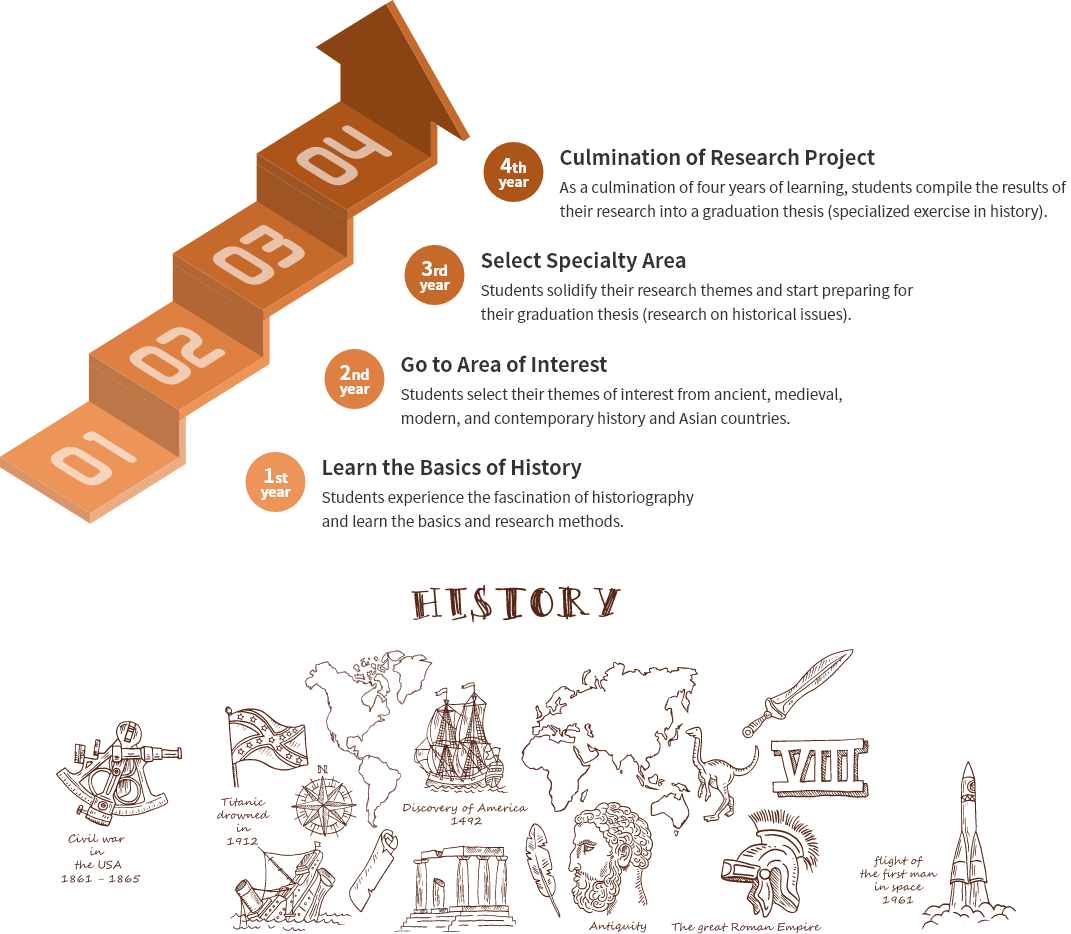
Fieldwork
Historical Walk in Itabashi
Itabashi-ku, where the campus is located, is rich in materials for learning history. With many stone memorial towers called “Itabi” from the middle ages, Itabashi was flourished as an inn town along the Nakasendo Road in early-modern times. There are
many books and papers on the history of Itabashi in libraries and archives. After learning these, students will actually go out into the city with a map in hand and touch the history.
By doing so, they sometimes discover new historical facts. Through learning in Itabashi, they can experience the joy of “new discoveries,” such as discovering an unknown Itabi and deciphering historical documents that no one has ever read.
By doing so, they sometimes discover new historical facts. Through learning in Itabashi, they can experience the joy of “new discoveries,” such as discovering an unknown Itabi and deciphering historical documents that no one has ever read.
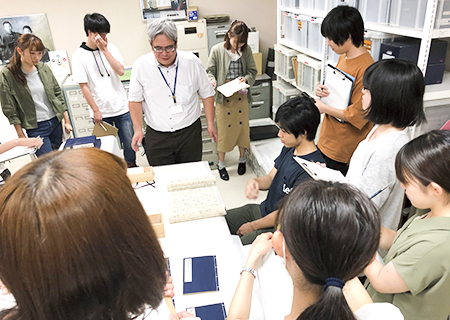
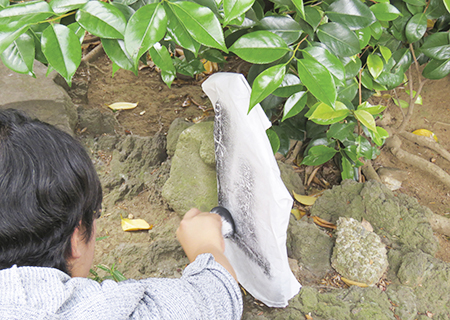
Historical Image from Genuine “Ancient Documents”
During fieldwork at the Itabashi Historical Museum, students will improve their reading comprehension on Kuzushiji, characters written in a cursive style, by being exposed to and reading “ancient documents” deposited at the museum.
In addition, during the seminar camp, students will organize and investigate unorganized ancient documents stored at Soji-ji Soin (Soji-ji ancestor temple) in Ishikawa Prefecture. By handling unknown ancient documents, they may discover new historical facts.
In addition, during the seminar camp, students will organize and investigate unorganized ancient documents stored at Soji-ji Soin (Soji-ji ancestor temple) in Ishikawa Prefecture. By handling unknown ancient documents, they may discover new historical facts.
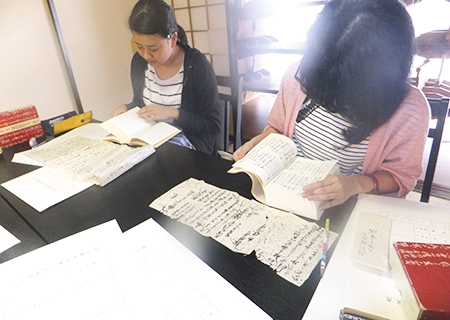
Experience “History of People Living in Asia” in Tokyo
In the fieldwork of oriental history, students will experience “Asia” while in Tokyo. At the off-campus Institute of Oriental Culture, students will experience “Asian history” through rubbed copies, audio materials, and books.
Furthermore, they will visit Mt. Koma, Oiso in Kanagawa Prefecture, and the Koma River in Saitama Prefecture to look for traces of the development of the East by visitors from the Korean Peninsula.
Furthermore, they will visit Mt. Koma, Oiso in Kanagawa Prefecture, and the Koma River in Saitama Prefecture to look for traces of the development of the East by visitors from the Korean Peninsula.
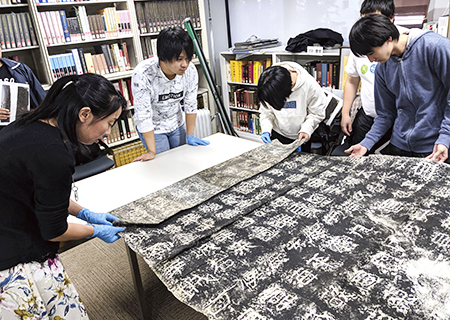
Read History from Things
The School of History also offers history classes that explore history through things, using archaeological materials. In “Archaeology Practice,” students will learn basic archaeological research methods using the archaeological materials donated to our
university as teaching materials.
They will also learn how to make measured maps, how to take rubbings, and how to take photographs and trace drawings assuming the creation of an archaeological excavation report.
They will also learn how to make measured maps, how to take rubbings, and how to take photographs and trace drawings assuming the creation of an archaeological excavation report.
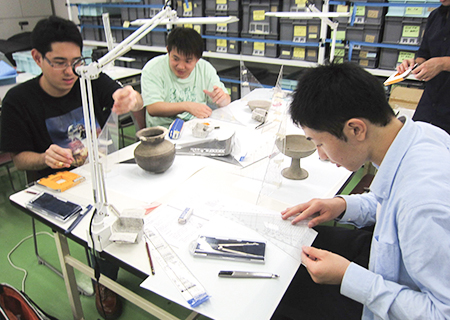
Explore History Abroad
Students sometimes accompany our teaching staff on research trips abroad. In fact, there were students who participated in surveys in Mongolia and Vietnam. In Mongolia, they excavated ruins remaining on the grasslands, and investigated the remains of
palaces and burial facilities.
Some students turned the results into their own research themes and wrote their graduation theses. In Vietnam, they participated in a survey of excavated coins housed in a museum. Research abroad provides an opportunity to broaden their horizons not only through historical studies but also through exposure to local customs and lifestyles.
Some students turned the results into their own research themes and wrote their graduation theses. In Vietnam, they participated in a survey of excavated coins housed in a museum. Research abroad provides an opportunity to broaden their horizons not only through historical studies but also through exposure to local customs and lifestyles.
